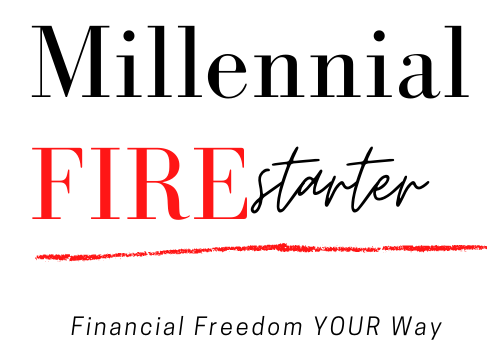
Many people are obsessed with eliminating debt at all costs. I used to be one of those people. What I have learned is that this way of thinking is typically driven by the fear. I’m not saying that paying off debt is a bad thing. But the journey to debt freedom over other financial priorities may be driven more by emotion than logic. In my case, fear of debt came from the paranoia that something horrible would happen that would cause me to be unable to pay my debts. If I have no debt, I owe no one, and life is stress-free! Sadly this is not the case. While I still go out of my way to avoid debt, I am not going to aggressively pay down debt if it doesn’t align with my financial goals.
By simply paying down debt I am ignoring my true fear which is the fear of the unknown. Instead of trying to avoid my fears by paying debt I am focused on building assets which can pay for my debts in a potential crisis. The easiest way to reduce the likelihood of a loss of income is to have multiple income streams.
It took me a while to accept that cash flow is just as important as paying off debt. When you have cash flow, you have options. You have to ask yourself if debts are all that stressful if you know that you have the money to pay them off? Personally, I don’t think so.
With everything going on in the world people are starting to realize that a job is never guaranteed. This is why it is important to save, invest, and build multiple streams of income. I no longer stress when it comes to my debt because I could pay it off today if I wanted to but choose not to. Having the ability to choose where your money goes can be so much more satisfying than actually paying the debt. Why is that? Because when you have the ability to choose that means that you have options. Isn’t the true definition of freedom having the ability to choose what we want in life? Yes, I think so!
Interest Rate Matters When Paying Off Debt
What matters with debt payoff is the interest rate you are paying. If you have high interest debt such as payday loans or credit card debt that should be paid off as soon as possible! However, with lower interest rate debt such as a mortgage or student loans this may not be advantageous to pay off early.
Example Scenario 1
It is important to know your own goals so that you can clearly define the opportunity cost. What are you giving up for X to get Y?
For example, let’s say you have a 5% interest loan of $20,000 and you were given 10 years to pay it off. You have an additional $500 of discretionary monthly income that you can use to pay off debt or invest for a 10% annual return. Which do you choose?
While nothing is guaranteed with investing, you will be earning more on your money over time by putting your money in an investment that earns 10% as opposed to paying off a loan at 5% interest. It may be emotionally satisfying to put $500 more a month towards your loan but over time you could be missing out on an opportunity to make more money.
Example Scenario 2
Similar logic applies when dealing with a mortgage. The interest rate is typically lower because the loan is secured from the asset. You also have more time to pay off said loan since most mortgages are 30 –year or 15-year terms. This provides you more flexibility in your ability to use your money for other obligations or savings and investment opportunities.
Below is an example of the pros and cos of paying down a home mortgage early.
Paying off your mortgage early
| Opportunity | Opportunity Cost |
| Owe less money | Reduced cash flow. The money is not available to you once the debt is paid. |
| Build equity in home | Accessing equity requires paying the bank interest. |
| Pay less in interest over time | Miss out on potential gains in stock market that on average return 7% |
| Peace of mind | Changing the way you think about debt to produce even higher returns |

—
Potential drawbacks to paying down a low interest mortgage
Disadvantge of increasing your mortgage payments
When you pay extra towards your mortgage, that amount goes towards the back of your loan, not your upcoming payments. This makes doubling up on payments only reasonable if you have a balance that you can afford to off in the near future. Otherwise, you are better off having an emergency fund that covers 3 – 6 months of expenses that you can draw upon quickly.
Tightening restrictions on home equity
During these times of uncertainty you may be doing more harm than good by putting more money towards your mortgage with no end in sight. It is also worth noting that if you would ever like to draw on the equity you have in your home, you will be paying the bank interest to access that money.
During times of economic hardship such as the Great Recession or the COVID-19 Pandemic, opportunities to refinance or take out a home equity line of credit (HELOC) were limited. Banks start to tighten up to mitigate their risk of default and were not accepting new applications. Even if you have an existing account it is not unheard of for it to be cancelled or frozen in a bad market. If you believe that you may need to tap into your funds in the future, you may be better off holding your money in something more liquid than your primary residence. Examples are a brokerage account or a long-term bond.
More Equity is not always a good thing
Also be mindful that the more you pay down your mortgage you may be creating a better situation for the bank than yourself. Your home can be repossessed if you owe any amount on the property. The more equity you build in a home is less of a loss for a bank if you foreclose on your property. Some people look at keeping equity in a home low as a way to mitigate risk but that is only the case if you have enough cash to pay it off in full. It would be a terrible thing to make extra payments only to fall on hard times and have your home taken away.
Is this your forever home?
Do you plan to live in your home for the rest of your life? According to the National Association of Realtors, people live in their homes on average 13 years. Unless you are living in your forever home, paying off your debt early is probably not a sound investment. You will be better off saving for retirement or in assets that can produce some type of passive income.
I’m simply playing devil’s advocate for a very common way of thinking! I’m not a financial professional but reevaluating how I think about debt has really changed my life.
Like I said before, I used to be a person that threw all of my extra cash at my debts. This was until I realized that by only focusing on my debt, there is a huge opportunity cost. Evaluate your finances and see if you can save and invest your money while paying off debt. By doing both at the same time, it provides more security than just debt pay down.
Many people use Dave Ramsey’s Baby Steps when trying to get out of debt. If you are interested in what I agree and disagree with regarding the Baby Steps, I have a whole post dedicated to it.
Once I stopped aggressively paying down my debt, I was able to build up an emergency fund and invest my money. I am now able to reap the benefits of having interest paid to me and that is great feeling!












